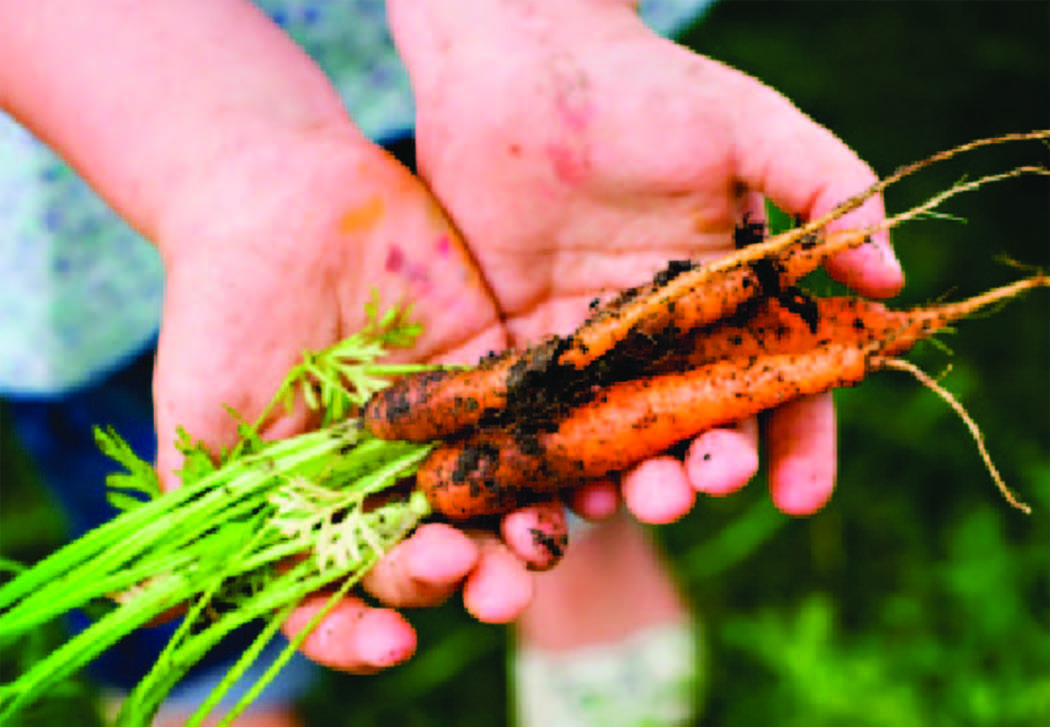THE ORGANIC CENTER
1. Choose organic seeds
Organic seeds are harvested from certified organic crops and therefore are not treated with fungicides like most conventional seeds.
Without the application of synthetic pesticides and fertilizers, organic plants rely more on their own defense systems when battling pests and diseases and grow deep roots to extract nutrients from the soil. Plants grown from organic seed are typically stronger and more adapted to thrive and grow under organic gardening practices.
2. Fertilize your soil by using organic compost and manure
Common non-organic garden fertilizers, found at your local garden and home store, may contain ammonium phosphate and other synthetic chemicals. These synthetic fertilizers do not break down and can contaminate soil and pollute waterways. They can also cause skin poisoning and are hazardous if inhaled or consumed. Nutrients in organic compost and manure are slower releasing and encourage stronger and deeper root systems, which in turn can help increase the nutrient content of your fruits and vegetables.
3. Use the buddy system
Companion planting (or intercropping) is an excellent organic gardening technique. Certain plants are beneficial to other plants by deterring harmful insects, attracting beneficial ones, adding fertilizer to the soil through their roots, providing shade or trellis support, or even by helping the neighboring plant produce a greater yield. For example, marigolds have been known to kill harmful nematodes in the soil and can even deter some of the hardiest of weeds, including bindweed. Garlic helps repel aphids and borers. Corn and beans are natural buddies: corn provides a strong stalk for the beans to climb, while the nitrogen-rich beans help feed the soil, encouraging healthier corn.
4. Control weeds naturally
Common garden weed killers like glyphosate can cause skin, eye, nose, and throat irritation. If glyphosate is ingested by pets, they can become ill, suffering from lethargy, hyper-salivation and vomiting. Control weeds naturally with boiling water, vinegar, and/or salt. Or use organic herbicides, which often contain limonene, a concentration of natural chemicals found in citrus, and essential oils. Certain weeds can be great to eat too! Almost all of them have deep roots, which makes them difficult to kill. But this also helps them enrich the soil by bringing important nutrients to the surface and makes edible weeds highly nutritious for us, too. Edible weeds include dandelion, purslane, mallow, lamb’s quarter, burdock, and nettles.*
* Not all “weeds” are edible so make sure you know what you are harvesting before eating them.
5. Avoid synthetic pesticides
Common home garden pest control products often contain toxic synthetic pesticides like triazicide and carbaryl. The Environmental Protection Agency considers carbaryl to likely be carcinogenic to humans. Exposure can also cause headaches, nausea, coordination problems, and more serious disorders. These pesticides kill insects by disrupting their nervous systems and are highly toxic to honeybees and other beneficial insects. Deter pests naturally by encouraging beneficial insects and using companion planting. Pests can be creatures of habit, so rotate your crops, by either planting different fruits and vegetables each year and/or planting them in different locations in your garden. This can help keep them guessing!
This article appears on the Organic Center’s website and is reprinted here with their permission The Organic Center is a 501(c)(3) non-profit research and education organization based out of Washington D.C. Their mission is to conduct and convene credible, evidence-based science on the environmental and health effects of organic food and farming and communicate the findings to the public.
For more infohttps://www.organic-center.org/






